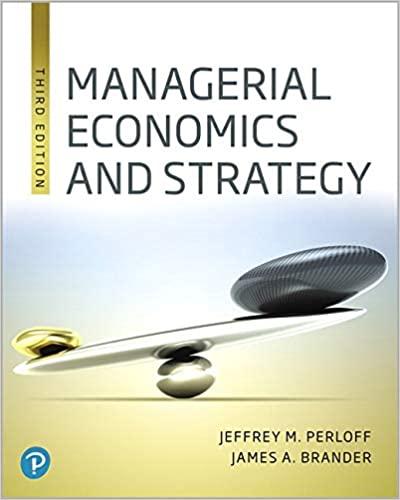Question
Question 23 Only one of the following flows represents a demand for Australian dollars (AUD). Which one? Short-term financial outflows from Australia Profit earned from

Question 23
Only one of the following flows represents a demandfor Australian dollars (AUD). Which one?
| Short-term financial outflows from Australia | ||
| Profit earned from Australian investment abroad | ||
| Australian investment abroad | ||
| Imports of goods and services into Australia |
Question 25
Which of the following policies could a government or central bank pursue to prevent the exchange rate from depreciating?
| Raise taxes | ||
| Raise interest rates | ||
| Increase the money supply through open-market operations | ||
| Buy foreign currencies on the foreign exchange market |
Question 26
Which of the following would cause exports to rise?
| An appreciation of the exchange rate | ||
| A depreciation of the exchange rate | ||
| A fall in overseas income | ||
| None of the above |
Question 27
A depreciation of the Australian dollar (AUD) would be caused by ________ and/or ________.
an increase in the supply of AUD; an increase in the demand for AUD | ||
an increase in the supply of AUD; a reduction in the demand for AUD | ||
a reduction in the supply of AUD; an increase in the demand for AUD | ||
a reduction in the supply of AUD; a reduction in the demand for AUD |
Question 29
Which of the following is NOT an argument against a an EU country joining the euro?
| It would make adjustment to domestic problems more difficult. | ||
| It would make dealing with asymmetric shocks more difficult. | ||
| It would make fiscal policy ineffective. | ||
| There would be a loss of national independence. |
Question 30
Which of the following would cause imports to rise?
| a fall in domestic income levels. | ||
| a rise in domestic income levels. | ||
| a depreciation of the exchange rate. | ||
| a rise in household saving. |
Question 31
The record of a country's transactions in goods, services, and assets with the rest of the world is its balance of trade.
True
False
Question 32
Which one of the following would cause an appreciation of the exchange rate (in each case assume that nothing else changes)?
| Speculation that the rate of interest will fall | ||
| A reduction in the current account deficit (and no change in the other parts of the balance of payments) | ||
| An increase in domestic incomes | ||
| Inflation increases relative to inflation rates abroad. |
Question 34
Asymmetric shocks in the context of a currency union are when
| all countries have the same problems. | ||
| internal shocks are different from external shocks. | ||
| shocks have different effects in different areas, countries, etc. | ||
| government departments have different goals. |
Question 35
Under a system of floating exchange rates, if the quantity of Australian dollars demanded exceeds the quantity of Australian dollars supplied
reserves will increase. | ||
the Australian dollars exchange rate will depreciate. | ||
the government will always increase the supply of money to eliminate this excess demand. | ||
the Australian dollars exchange rate will appreciate. |
Question 36
'Sovereign risk' refers to the risk that a government's or central bank's policies will make that country less favourable to companies doing business there.
True
False

Step by Step Solution
There are 3 Steps involved in it
Step: 1

Get Instant Access to Expert-Tailored Solutions
See step-by-step solutions with expert insights and AI powered tools for academic success
Step: 2

Step: 3

Ace Your Homework with AI
Get the answers you need in no time with our AI-driven, step-by-step assistance
Get Started


